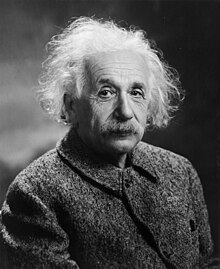
Back Physiker ALS فيزيائي Arabic فيزيائى ARZ Fizik Azerbaijani Фізік Byelorussian Фізык BE-X-OLD Физик Bulgarian পদার্থবিজ্ঞানী Bengali/Bangla Fizičar BS Físic Catalan

| Part of a series on |
| Physics |
|---|
 |
A physicist is a scientist who specializes in the field of physics, which encompasses the interactions of matter and energy at all length and time scales in the physical universe.[1][2] Physicists generally are interested in the root or ultimate causes of phenomena, and usually frame their understanding in mathematical terms. They work across a wide range of research fields, spanning all length scales: from sub-atomic and particle physics, through biological physics, to cosmological length scales encompassing the universe as a whole. The field generally includes two types of physicists: experimental physicists who specialize in the observation of natural phenomena and the development and analysis of experiments, and theoretical physicists who specialize in mathematical modeling of physical systems to rationalize, explain and predict natural phenomena.[1]
Physicists can apply their knowledge towards solving practical problems or to developing new technologies (also known as applied physics or engineering physics).[3][4][5]
- ^ a b Rosen, Joe (2009). Encyclopedia of Physics. Infobase Publishing. p. 247.
- ^ "physicist". Merriam-Webster.com Dictionary. "a scientist who studies or is a specialist in physics"
- ^ "Industrial Physicists: Primarily specializing in Physics" (PDF). American Institute for Physics. October 2016.
- ^ "Industrial Physicists: Primarily specializing in Engineering" (PDF). American Institute for Physics. October 2016.
- ^ "Industrial Physicists: Primarily specializing outside of STEM sectors" (PDF). American Institute for Physics. October 2016.
© MMXXIII Rich X Search. We shall prevail. All rights reserved. Rich X Search